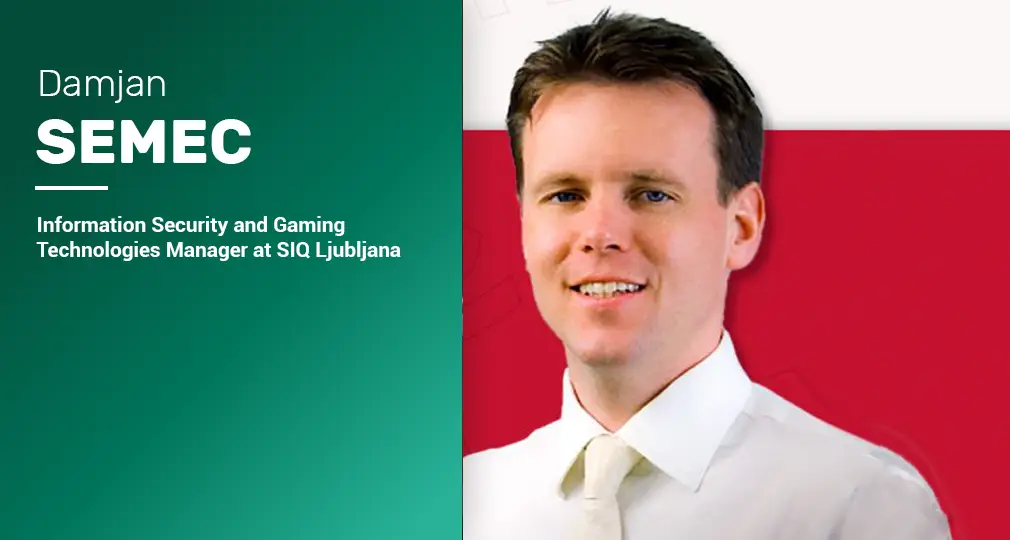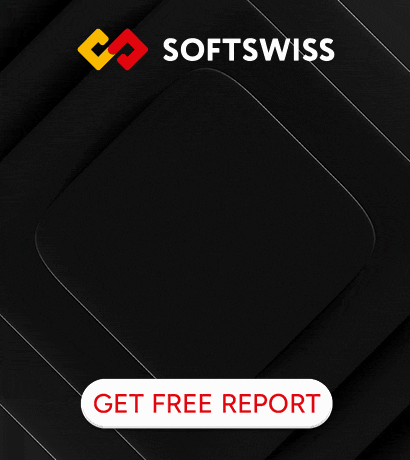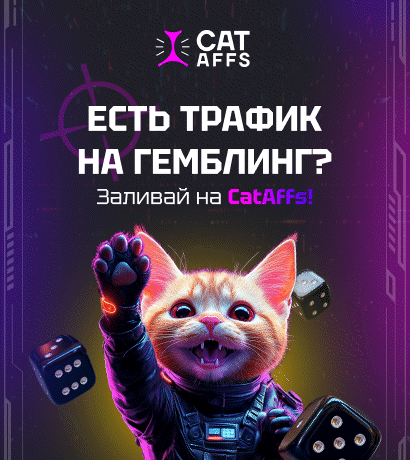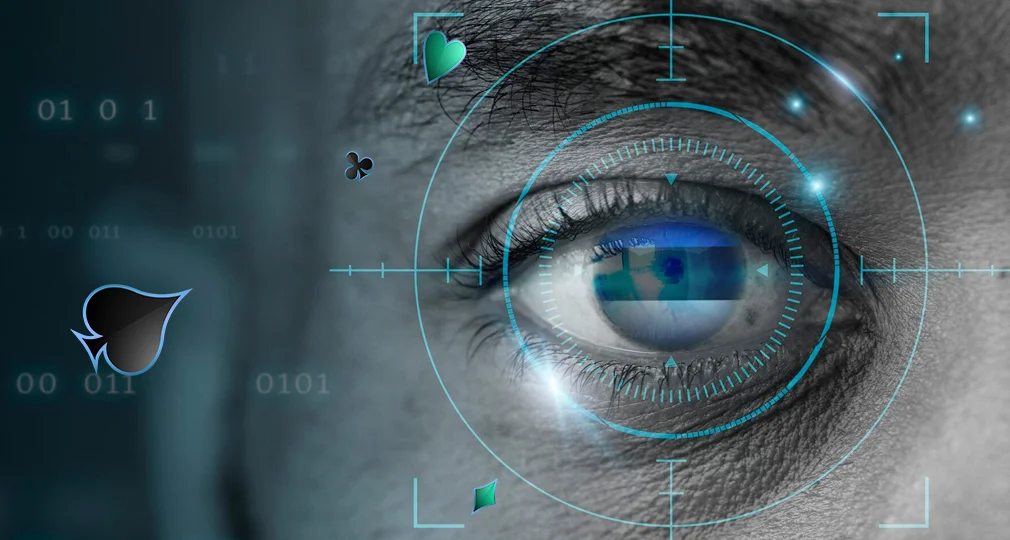Gambling is a huge industry that consists of many sectors, the synergy of which allows it to operate and develop. However, as opposed to other industry verticals, the testing and certification procedures aren’t much discussed in gambling news.
Damjan Semec, Information Security and Gaming Technologies Manager at SIQ Ljubljana, has told Login Casino readers about the peculiarities of gambling equipment testing, stages of getting a certificate, and competitiveness between companies, which provide such services.
What exact gambling equipment does your company certify?
Unlike some other test houses/labs, SIQ is not only a gaming/gambling testing provider. In addition to gaming/gambling related services, SIQ also provides the following services:
- Management system audits (such as ISO 9001, ISO 14000, ISO 27001).
- Testing and certification of products (providing services of electromagnetic compatibility (EMC) and electrical safety (LVD in EU) for various products).
- Information security verification (providing services such as vulnerability scanning, penetration testing, social engineering, etc.).
- Explosion protection services (where we are verifying suitability and compliance of the equipment that is operating in an explosion hazardous environment, for instance, gas pumps).
- Metrology (providing the services of calibration of measuring instruments).
- Training services.
With such a broad testing scope, SIQ can provide a one-stop solution for our customers. This means that a typical manufacturer of gaming/gambling equipment can get all the services, which are required by various regulators in one place.
For instance, a manufacturer of gaming machines, in addition to gaming related testing (such as RNG, RTP), usually also needs EMC and electrical safety testing and might also need ISO 9001 or ISO 27001 verification. All this is provided by SIQ. The same goes for a typical internet technology provider or operator, along with gaming-related testing, they also need information security verification (such as penetration testing, vulnerability assessment), gaming audits (for instance, change management), uptime/tier III verification of data centers, etc.
In the area of games of chance, we can test, certify, audit, and inspect all gaming/gambling products for operating land-based and Internet gaming/gambling. This would typically include (but is not limited to):
- Casino, AWP, VLT, LPM gaming machines;
- ETG – electronic table games (such as automated roulette, SicBo, etc.);
- iGaming/remote/Internet gaming systems and games (casino games, sports betting, esports, fantasy sports, PvP games);
- Progressive systems;
- Server/client systems;
- Online casino monitoring systems;
- TITO and cashless systems;
- Player tracking and bonusing systems;
- Table games (roulette, card shufflers);
- Bingo and keno drawing lot devices.
We are also providing our services for lotteries such as testing of drawing drums, measuring of drawing balls, responsible gaming audits, etc.
Tell us in more detail how the certification of gambling equipment takes place, what stages does it have to go through to get this certificate?
This, of course, depends on the product that we are testing. But in the end, the goal is always the same, we all want that the games of chance are fair to all participating parties (players, manufacturers, operators, country/state/regulators).
A typical test of gaming machine would consist of functional/regression testing (time per game measurements, the test of meters, test of interrupts, etc.), random number generator (RNG) analysis, return to the player (RTP) verification, which can be performed with analytical approach or with simulations, communication protocol testing, integration testing of connectivity to various casino management systems (CMS), and last but not least source code/software analysis, which is the most important part. Together with the manufacturer, we also perform the final compilation of the source code to the executables/binaries.
Internet systems are even more complex as they are operating in a non-controlled environment, along with this, the technology of a typical gaming website is provided by various suppliers, each providing its part. So in addition to the above-specified tests, we also have to perform additional tests such as integration testing, gaming audits, information security (penetration testing, vulnerability scanning), information security audits (ISO 27001), uptime/tier III verification of data centers.
This means that our engineers must be able to daily cope with different technologies and different requirements of global jurisdictions and therefore have in-depth knowledge of mathematics, statistics, software programming, electronics, physics, etc. Our policy is to employ highly skilled engineers who can easily prepare new procedures and daily adapt to new technologies.
Are there uniform standards for equipment certification in European countries (where gambling is legalized)? For example, the size of the tables and so on?
There are no EU harmonized standards, legislation, or set of requirements in gaming/gambling-related testing. Each state/country has its own regulation/set of requirements, furthermore, there can be several sets of requirements in an individual country/state.
For instance, Spain has 17 provinces (Comunidad autónoma), each having its own regulation. It is true that some requirements in different countries/jurisdictions are similar; however, there is no general/common test report that would cover all jurisdictions in Europe. It is also important to mention that typical international product standards (e.g., ISO, IEC, CEN) would contain both the technical requirements and required testing methodologies to verify the product compliance. On the other hand, no national technical standards or technical regulation for gaming technologies contains any description of testing methodology, therefore it is up to the testing laboratory to establish adequate testing procedure and to the accreditation body and the jurisdictional gaming authority to approve it.
What difficulties does the company experience when testing gaming equipment?
Our engineers must be able to daily cope with different technologies and different requirements of global jurisdictions and have in-depth knowledge of mathematics, statistics, software programming, electronics, physics, etc. Besides, the supplied documentation, requirements, and test reports that we have to produce are or have to be in different languages (English, Spanish, Dutch, etc.), which can be quite challenging. Our policy is to employ highly skilled engineers who can easily prepare new procedures and daily adapt to new technologies.
What guarantees does the company provide regarding the quality of certified equipment? How likely is it that, for example, a slot machine has a “bug” and works incorrectly after receiving a certificate?
Test labs are not verifying the quality of the products nor we are searching for the bugs. The task of the testing laboratory providing the gaming-related testing is to verify if the product meets the requirements of the regulation or not. We do, however, occasionally find operational bugs during the testing process as we work extensively with the product, but as mentioned this is not the main task.
What specific markets or operators does SIQ work with?
SIQ is an accredited laboratory for the area of gaming for testing, certification, and inspection services by the Dutch accreditation body RvA, but this does not automatically give us or any other lab that has similar or same accreditation the right to test for different countries/jurisdictions. Testing labs are allowed to provide services for individual country/state/jurisdiction only after we are granted the authorization (license, registration, accreditation) for it by the individual gaming authority. The licensing process usually consists of suitability verification of the company and personnel, verification of technical competencies and usually also requires relatively high professional indemnity insurance. There are over 350 jurisdictions globally.
SIQ is a global licensed laboratory, which means that we can provide services to all jurisdictions in Europe, Africa, Asia, Latin America, and many jurisdictions in North America. Currently, we are also working on Australian and New Zealand registrations. All jurisdictions we cover are daily used by different manufacturers and operators.
Is there a lot of competition among companies that provide certification services? How does this market work?
The coverage of global jurisdictions is the name of the game for the testing laboratories. There are actually only a few laboratories with global coverage, SIQ being one of them.
What prediction can you give for the gambling industry in the world? Can we assume that the pace of legalization of gambling markets all over the globe has reached a new level?
The gambling industry especially the land-based part of it was hit quite heavily with COVID-19 related restrictions and closures. The positive side is that we already see the first signs of recuperation. It will take some time to a full recovery, but we will get there. On the other hand, we saw quite a huge increase in activity in the Internet gambling sector. During the COVID-19 pandemic, well-established operators in the Internet gambling industry were joined by operators from the land-based industry. This also positively affected the regulations as many regulators were more liberal in allowing the new technologies and made changes in the regulation to adapt to the new reality of COVID-19 restrictions. Once these doors were opened, I believe there is no way back. So, we see a bright future for the gambling industry in the forthcoming years.
Read more: Best Gambling Payment Providers













